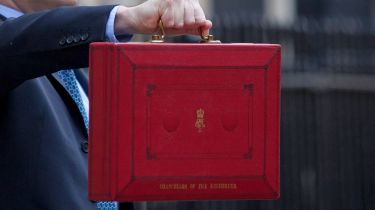“Cut VAT to bring down prices of electric cars” SMMT urges Jeremy Hunt
A proposed tax cut for EVs could bring down prices by an average of £4,000

The Government is set to announce its Spring Budget next week, and the UK’s main car industry trade body has urged the Chancellor of the Exchequer, Jeremy Hunt, to help bring down the prices of EVs by introducing a cut in VAT.
In a new statement, the Society of Motor Manufacturers and Traders (SMMT) said that a 50% break in VAT on the price of new electric cars could see the average price of a new EV drop by as much as £4,000, boosting electric vehicle sales by as much as 270,000 units per year.
A survey by the industry body also suggested that now almost half (46%) of prospective new cars buyers won’t make the switch to an EV before at least 2030 – up from just 10% before the government announced its extension of the 2030 petrol-and-diesel-car ban until 2035. Furthermore, more than one in ten (14%) people even expressed that they would never buy an electric car in the first place.
This negative shift in the public perception of EVs is highlighted by a 19 per cent slump in private EV sales in 2023 compared to 2022. The SMMT attributes this to the high prices of new EVs, with the trade body revealing that the UK government has benefitted from a VAT windfall of as much as £1.7 billion in the last five years due to expensive electric cars demanding a higher tax contribution from the buyer.
However, the SMMT suggests that a cut in VAT would cost less than the now-discontinued plug-in car grant and could in turn encourage four in ten (37%) drivers to consider an EV sooner. Research also showed that such a drop in VAT would even potentially change the minds of a quarter (26%) of drivers who were adamantly against switching to electric power.
Of course, the number of electric cars on UK roads is growing, largely due to the huge number of fleet sales partly driven by tax incentives such as the low 2% Benefit-in-Kind tax rating for company car drivers.
That said, the market share of EVs is still hovering around 16% and the SMMT says that this could shrink given that the VED (road tax) break will end next year, meaning seven in ten electric cars sold would be liable for the £390 ‘luxury tax’ surcharge as a result of their high purchase price.
SMMT boss, Mike Hawes, commented on the matter saying: “The Budget is a crucial opportunity to re-energise the EV market, with fair tax for a fair transition. The Chancellor must end the perverse fiscal system that discourages drivers from moving away from fossil fuels and send a clear signal that the time to go electric is now.
“Success will see our economy powered up by zero emission mobility, delivering cleaner air, quieter roads and cheaper running costs, ending the uncertainty we are seeing amongst motorists.”
As of the time of writing, the UK remains the only major EU country to lack an EV incentive for private buyers. The plug-in car grant was discontinued in June 2022 and since then, car buyers and manufacturers alike have urged the government to reintroduce some kind of scheme in order to get new car buyers into the seats of zero-emissions vehicles.
Not only is this important to drive down the prices of EVs for the consumer, but also for the manufacturers themselves as each must now comply with the UK’s zero-emissions vehicle (ZEV) mandate. This forces brands to ensure that a certain proportion of their new car sales are made up of EVs or other zero-emissions cars, lest they receive a heavy fine.
